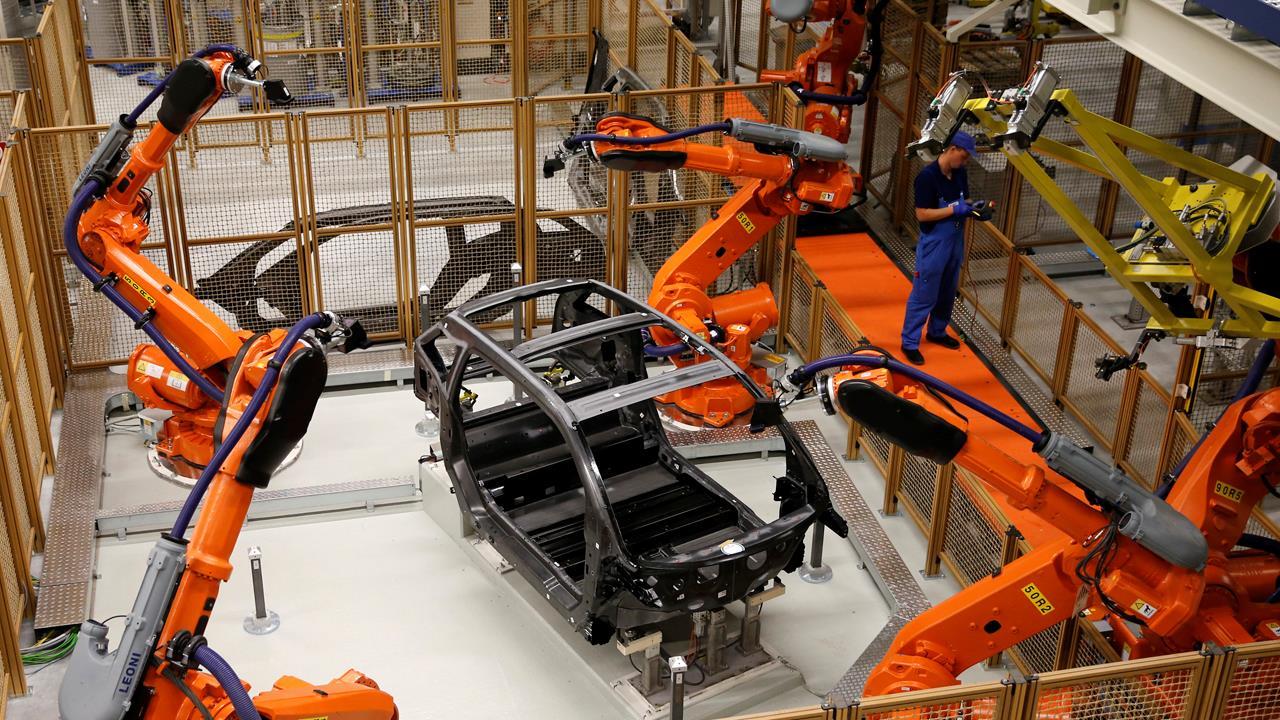AI, robots will create more jobs that it destroys, AI solutions firm says
The prevailing wisdom has been that the increasing use of artificial intelligence (AI) and robots could lead to fewer jobs for people as the push for minimum wage increases across the country speeds up the process.
Some executives, particularly in the fast food industry, have spoken out about considering the use of AI and robots in an effort to reduce costs. Jack in the Box CEO Leonard Comma reportedly said that replacing cashiers with automated kiosks, “just makes sense,” according to Business Insider.
“It’s cheaper to buy a $35,000 robotic arm than it is to hire an employee who’s inefficient making $15 an hour bagging French fries,” Ed Rensi, former McDonald’s (NYSE:MCD) USA CEO and FAT Brands Chairman, told FOX Business’ Maria Bartiromo in May 2016.
But Genpact CEO Tiger Tyagarajan has taken the contrarian point of view, predicting that increased use of AI in the workforce will actually create more jobs.
“It will, and we are seeing that in the beginnings already. So, the landscape of the way work gets done is changing, so obviously the landscape of skills are changing, but as a result new jobs are getting created,” Tyagarajan told FOX Business’ Maria Bartiromo on “Mornings with Maria” on Friday.
Tyagarajan says that although it is understandable to be scared about the potential changes to the workforce due to technology, there is reason to be optimistic.
“The reality is it is scary. Everyone is scared; I’m scared. But, to approach it not as an optimist I think is wrong because history has shown that human beings are clever enough and creative enough to figure out answers that we can’t even imagine today,” he said.
Tyagarajan then explained how college students can prepare for the changing workplace environment ahead of them.
“Two options: Go for computer science and math and STEM and all that rhetoric that we see in the newspapers, which is a great idea. But, you [can] do what my son did liberal arts, politics, history, government, understanding human behavior, how organizations change rapidly…because all of those [are] also important,” he said.
According to Tyagarajan, some jobs that have an emotional component will be safer from being replaced by AI.
“So, emoting with patients, emoting with a customer who’s in, you know, who’s going through pain in their mind, emoting with someone who’s going through a life-changing event because they might have an accident and while their claim is being processed for an auto insurance claim, it’s not just about the money, it’s about can you emote to that person,” he said.




















